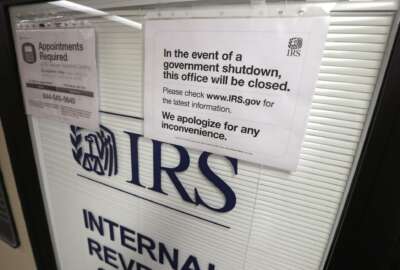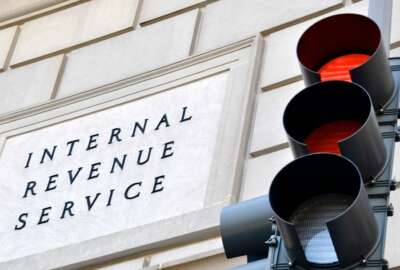

The Biden administration is calling for an $80 billion investment in the IRS over the next decade, with the expectation that it will bring in $700 billion in tax...
President Joe Biden is calling for a reinvestment in the IRS, after a decade of workforce and budget cuts, to collect hundreds of billions of dollars in tax revenue left on the table every year.
The Biden administration is calling for an $80 billion investment in the IRS over the next decade, with the expectation that it will bring in $700 billion in tax revenue by shrinking the “tax gap” between what taxpayers owe and what the IRS collects every year.
The Treasury Department, in a press release outlining the administration’s plan, estimates the tax gap will grow to $7 trillion over the next decade under the IRS’s current level of funding, and that “insufficient resources” at the agency is the leading cause of a growing tax gap.
IRS Commissioner Chuck Rettig told the Senate Finance Committee earlier this month “it would not be outlandish to believe” the current tax gap is approaching $1 trillion per year.
A recent study led in part by IRS staff found the top 1% of taxpayers failed to report up to 20% of their income, and as a result, fail to pay nearly $175 billion in taxes every year. Meanwhile, the audit rate for taxpayers making more than $1 million has fallen by almost 80% over the past decade.
The administration’s proposal would focus on building up the IRS’s tax enforcement operations, which has seen a 35% decrease in staffing over the past decade. The IRS lost 33,000 total employees over the past decade, and has seen its budget cut by about 20%.
The spending plan, however, also calls for investment in the agency’s ongoing six-year IT modernization effort and taxpayer services.
A senior administration official told reporters that Americans earning less than $400,000 a year would not see a higher audit rate compared to recent years under the spending plan.
“In America, today, taxpayers are more likely to be audited if they live in the Mississippi Delta than if they live on Park Avenue,” the official said. “The president’s plan would change this and really get at a fundamental element of fairness in the tax code — making sure that the taxpayers are paying the taxes they already owe.”
The White House is also calling on Congress to pass legislation that would give the IRS the authority to regulate paid tax preparers.
The spending plan Biden will unveil is separate from the 2022 discretionary spending proposal he released earlier this month, which would give the IRS an additional $1 billion for its enforcement activities.
IRS Commissioner Chuck Rettig recently said he could hire 4,875 enforcement personnel with that money.
National Treasury Employees Union President Tony Reardon said giving the IRS more revenue officers and revenue agents to go after tax cheats is a “common sense” way to collect more revenue without any changes to the tax code. For every dollar invested in the IRS, the agency collects at least $6.
“The statistics show that when the IRS has a full staff of well-trained, professional civil servants answering taxpayer questions, conducting audits and deterring would-be cheaters, the entire tax system works more efficiently,” Reardon said.
Professional Managers Association Executive Director Chad Hooper said the agency has fewer auditors today than it did during the 1950s and relies on some 60-year-old IT systems to meet its mission. Giving the agency the resources it needs to do its job, he added, should be a “no-brainer idea that all lawmakers rally behind.”
“Over the past year, IRS employees have consistently demonstrated their dedication to serve the American people in every way requested of them, including issuing over hundreds of millions of stimulus checks. However, it is unfair to taxpayers and employees alike to continue placing additional burdens on the service without providing the funding needed to effectively administer the tax code,” Hooper said.
Copyright © 2025 Federal News Network. All rights reserved. This website is not intended for users located within the European Economic Area.
Jory Heckman is a reporter at Federal News Network covering U.S. Postal Service, IRS, big data and technology issues.
Follow @jheckmanWFED


